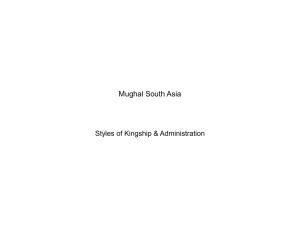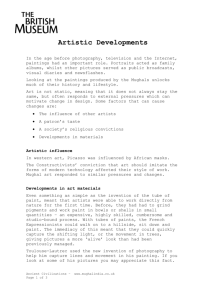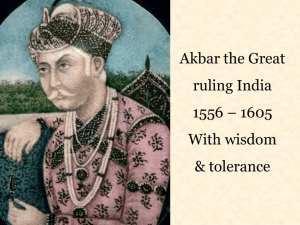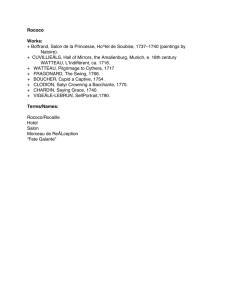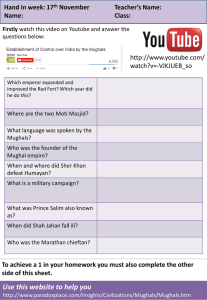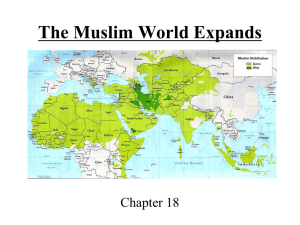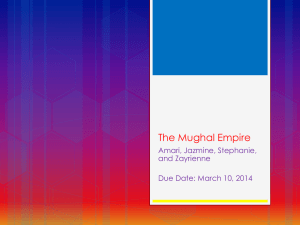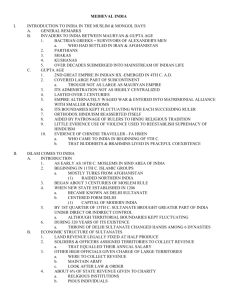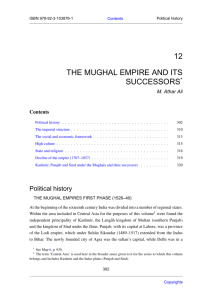Akbar / Elizabeth I Comparison Sheet
advertisement
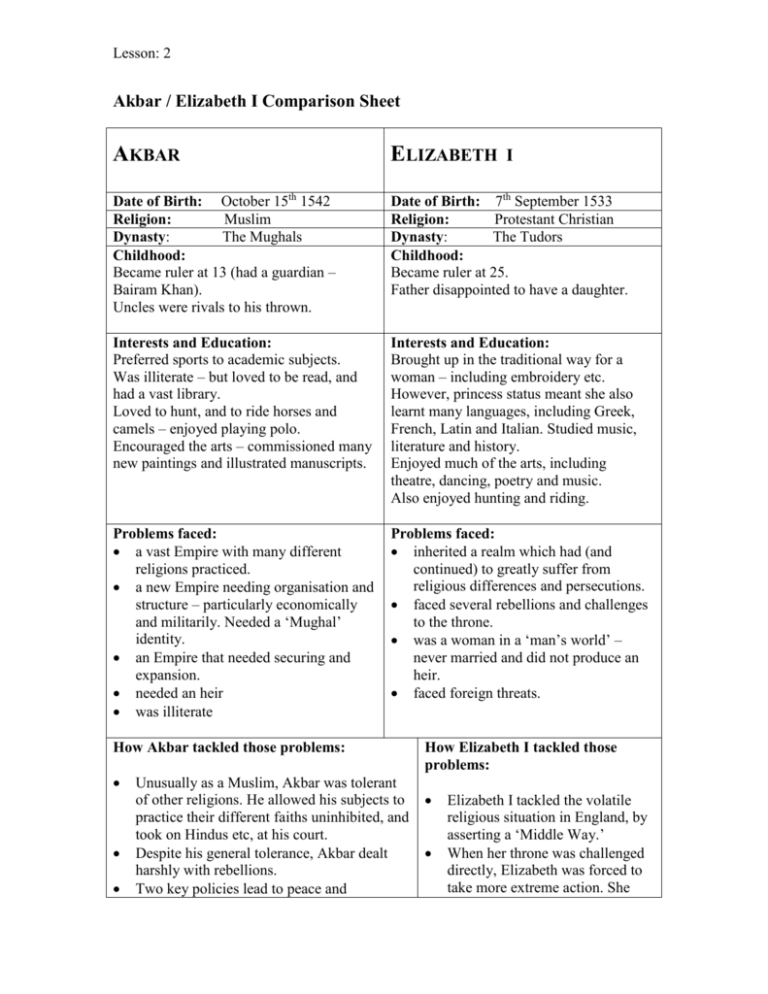
Lesson: 2 Akbar / Elizabeth I Comparison Sheet AKBAR ELIZABETH Date of Birth: October 15th 1542 Religion: Muslim Dynasty: The Mughals Childhood: Became ruler at 13 (had a guardian – Bairam Khan). Uncles were rivals to his thrown. Date of Birth: 7th September 1533 Religion: Protestant Christian Dynasty: The Tudors Childhood: Became ruler at 25. Father disappointed to have a daughter. Interests and Education: Preferred sports to academic subjects. Was illiterate – but loved to be read, and had a vast library. Loved to hunt, and to ride horses and camels – enjoyed playing polo. Encouraged the arts – commissioned many new paintings and illustrated manuscripts. Interests and Education: Brought up in the traditional way for a woman – including embroidery etc. However, princess status meant she also learnt many languages, including Greek, French, Latin and Italian. Studied music, literature and history. Enjoyed much of the arts, including theatre, dancing, poetry and music. Also enjoyed hunting and riding. Problems faced: a vast Empire with many different religions practiced. a new Empire needing organisation and structure – particularly economically and militarily. Needed a ‘Mughal’ identity. an Empire that needed securing and expansion. needed an heir was illiterate Problems faced: inherited a realm which had (and continued) to greatly suffer from religious differences and persecutions. faced several rebellions and challenges to the throne. was a woman in a ‘man’s world’ – never married and did not produce an heir. faced foreign threats. How Akbar tackled those problems: Unusually as a Muslim, Akbar was tolerant of other religions. He allowed his subjects to practice their different faiths uninhibited, and took on Hindus etc, at his court. Despite his general tolerance, Akbar dealt harshly with rebellions. Two key policies lead to peace and I How Elizabeth I tackled those problems: Elizabeth I tackled the volatile religious situation in England, by asserting a ‘Middle Way.’ When her throne was challenged directly, Elizabeth was forced to take more extreme action. She Lesson: 2 prosperity in the Mughal Empire – Akbar’s policies of conquest and reconciliation (see Akbar book). Akbar kept court and other employers loyal by paying them fairly and not allowing them to accumulate too much power, property or wealth. Subjects enjoyed a fairer tax system and greater religious freedom – which maintained peace and loyalty. The army was well organised with the introduction f the mansabdari system (see Akbar book on site). Akbar didn’t let his illiteracy inhibit him. He loved to be read to and invested in a large library. He also had his memoirs written by the court chronicler, Abul al-Fazl. Akbar built several palaces and forts to underline his power. Akbar encouraged trade and was keen to export to other countries. He was also a keen patron of the arts. reluctantly agreed to have to have Mary Queen of Scots executed. The identity of Elizabeth’s rule was focused on her personality. The court was bound closely to her, and she regularly made progress reports through trips around the country. She defended the realm very successfully against outside aggressors. Elizabeth I avoided marriage, as this might have weakened England’s independence. She encouraged trade and was keen to export to other countries. She was also supportive of explorers.
